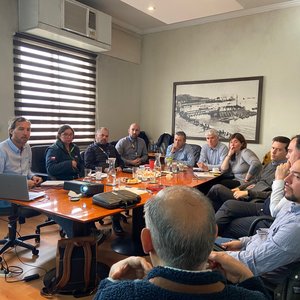Breeding sea lice is a new preoccupation at Skretting Aquaculture Research Centre (ARC). To achieve this aim the researchers equipped a dedicated laboratory at the fish trials station at Lerang, near Stavanger in Norway.
The laboratory is a separate building, isolated from the rest of the trials station. It has an array of tanks for the trial fish and two for hatching lice.
“Having the lab enables us to test various feed formulations developed to combat sea lice while having full control over all the variables,” comments Ekhard Witten, manager of the fish health department at Skretting ARC.
“Skretting already supplies Target feeds to help the salmon resist infestation and they are proving to be a valuable part of integrated pest management programmes. With the new lab we can reduce the time needed to develop anti-lice feeds that will be even more effective.”
Infection pressure
Researcher Tommy Berger Eriksen, adds, “It is difficult to carry out controlled lice challenges in the sea because you do not know what the infection pressure is from the natural presence of sea lice. Conducting the trials in the laboratory we will have the same infection pressures to compare the various feed formulations. Potentially, new ingredients can reduce lice infection by influencing characteristics of the fish’s immune system and skin and possibly could have a repellent effect.”
The research team succeeded in hatching its first sea lice and infecting salmon with copepodites, a stage in the lice life cycle when they are parasitic on salmon.
“Growing sea lice in a laboratory was a challenge,” says Irene Heng Lauvsnes, manager of the fish trials station.
“Generally fish farmers are trying to kill the lice but just here we are pleased they have survived. When we have finished standardising the trial protocol we will begin testing potential anti-lice feed ingredients.”
Further extension of activities
A further extension of activities at Skretting ARC is signalled by the arrival this month of Dr Lenaïg Richard as an R&D project manager to lead research into shrimp feeds. Her appointment underlines Skretting’s commitment to this sector of aquaculture. Dr Richard studied in her native France and in the Netherlands and has been occupied in shrimp feed research at INRA since 2008.










